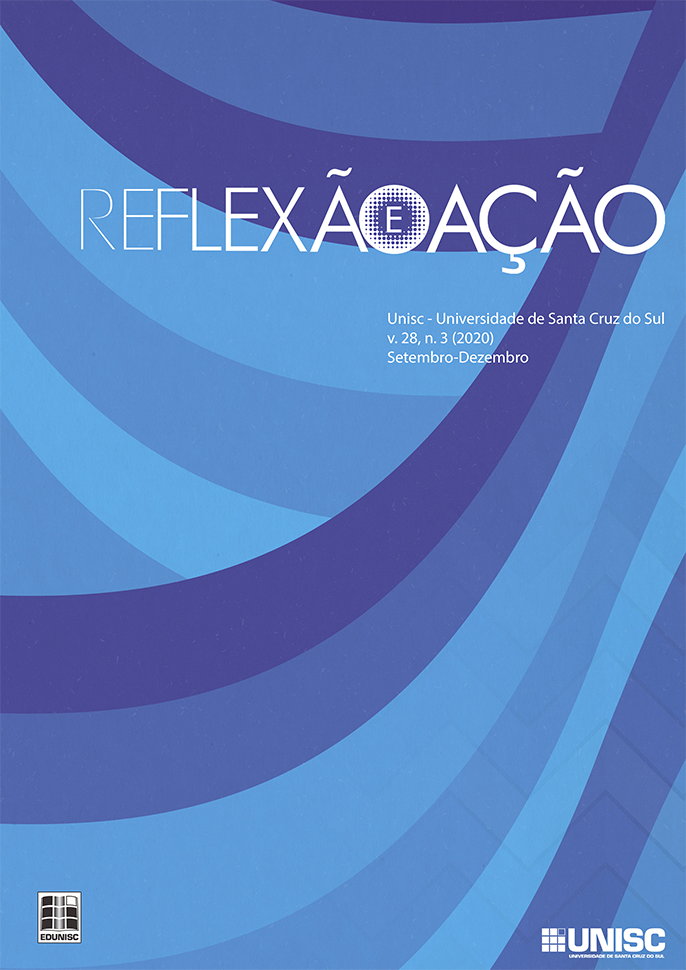The Enem and disciplinary practices in the constitution of the student with “1000” as a grade
DOI:
https://doi.org/10.17058/rea.v28i3.12788Keywords:
Enem. Facebook. Michel Foucault. Disciplining of bodies. Discipline of knowledge.Abstract
The article presents research results developed with the purpose of examining the student constitution with grade "1000" in the High School National Exam (Enem). The empirical material consists of Facebook’s posts addressed to candidates preparing for the Exam. The theoretical foundation is anchored in Foucault's thinking. The analysis showed a strong relationship between good performance on the Exam and disciplinary functions, as time and activity management. Thus, it can be concluded that, even in social networks, a good student is positioned as the one who follows the mechanisms that underline the modern school, marked by the disciplinary processes of bodies and knowledge.Downloads
Downloads
Published
How to Cite
Issue
Section
License
The submission of originals to this journal implies on the transference, by the author(s), of the printed and digital publishing rights. The author´s rights to the published articles are the author´s, the journal has the rights over the first publication. The author(s) can only use the same results in other publications, indicating clearly that this journal was the original publisher. Since we are an open access journal, the free use of articles is permitted for educational and scientific applications, as long as they inform the source according with the CC-BY license from Creative Commons.


